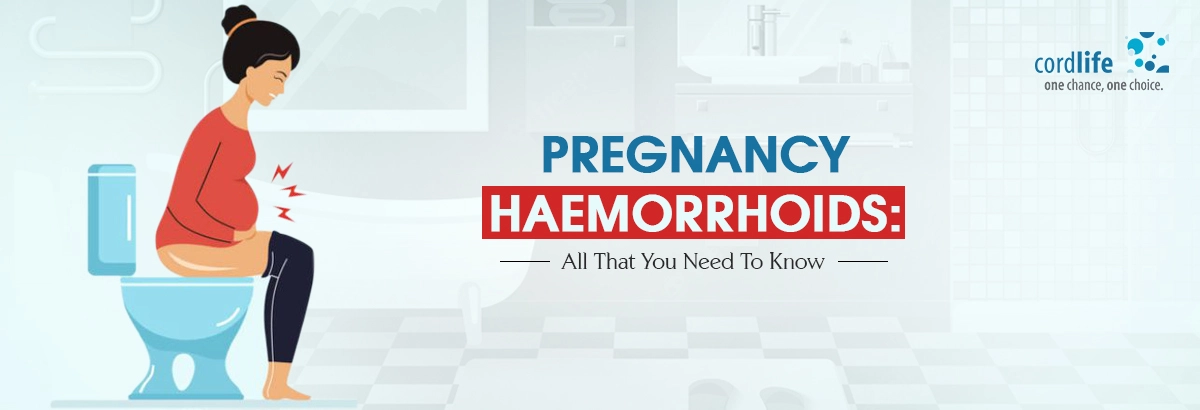Table of Contents
Haemorrhoids, also known as piles are basically swollen veins. They jut out of the anus causing pain and bleeding with the stool. These are common irritations and tend to develop as a result of constipation, and old age. Haemorrhoids (Piles) can occur even during your pregnancy. A study shows that around 25% to 35% of you may experience haemorrhoids during pregnancy.
What Causes Haemorrhoids During Pregnancy?
Pregnancy haemorrhoids occur when pressure is created in the pelvic region and the digestive tract. This pressure is so heavy that there is swelling in the anus. When you are expecting a baby, this pressure is created by:
The Developing Foetus
The expanding foetus exerts downward pressure on the pelvic region as well as the digestive tract. This extra weight of the foetus pressurizes the veins in the anus. As a result of which the blood isn’t able to move easily through your body. Rather, the blood movement is slow. Not just that, it pools, trickles, and swells inside the veins of the anus.
Increased Blood Volume
Due to the support of the growing baby inside you, the volume of blood increases. In fact, the veins in the anus would have to put in the extra effort to increase the blood flow throughout the body.
Constipation
Due to the rising pregnancy hormones as well as the expanding uterus, you might feel constipated. You might even complain of feeling gassy, bloated, and in pain. Studies have indicated that 40% of you may suffer from constipation during pregnancy. In fact, as a result of constipation, you might strain hard on the rectum as you pass the stool, thus aggravating your piles during pregnancy.
Family History
If you are pregnant for the first time and have had a family history of piles in the past, your chances of developing piles are higher.
Miscellaneous Reasons
The above-mentioned reasons aren’t enough. The experts from the National Institute of Diabetes and Digestive and Kidney Diseases have some more reasons to reveal. The other reasons include:
- Consumption of low fibre diet.
- Sitting on the toilet for a long period.
- the weak tissues around the anus.
- Lifting heavy objects2.
What are Some of the Common Symptoms of Pregnancy and Haemorrhoids?
Haemorrhoids, while you’re pregnant, are common mainly in your third trimester, starting around the 28th week of your pregnancy. They look like varicose veins when they run through your body. You may suffer from piles even a month after the delivery of your baby. In fact, haemorrhoids are of two types. They are external and internal haemorrhoids.
External Haemorrhoids
They form outside the anus, and the symptoms include:
- Swelling
- Burning sensation
- Itching
- Tender lumps near the rectum
- Pain in the anus while sitting
Internal Haemorrhoids
They form inside the rectum and there is a possibility that you push them out with your bowel movement. While doing so you will feel very uncomfortable. You will also find bright red blood on the toilet paper or the toilet bowl after you pass stool.
What are the Ways to Treat Haemorrhoids in Pregnancy?
Your doctor is going to treat the piles with ointments and suppositories or medicines. You might also have to try some home remedies to get rid of your piles. Therefore, as home remedies to cure piles during pregnancy:
- Drink plenty of water.
- Consume a high-fibre diet.
- Try not to put pressure on your anus by sitting on the toilet for a long time. Also, avoid standing for long. Try lying down. This will take the pressure away from the pelvic region. Alternately, while you sit, sit on a donut pillow.
- Give Kegel exercises a try and improve your muscle strength.
- Try a sitz bath or soak in warm water with Epsom salt at least for 10 minutes to cease the piles.
- Use flushable wipes.
- Hold an ice pack on the anus and rectum to get relief from the discomfort.
Try not to let pregnancy haemorrhoids hamper your beautiful pregnancy journey. This is like any other pregnancy challenge. Overcome it with these simple precautions.
Need More Information About Cordlife Stem Cell Banking?
Book a FREE Presentation Now
For more information on pregnancy, postpartum, baby care, and the benefits of cord blood banking follow our blog page.
